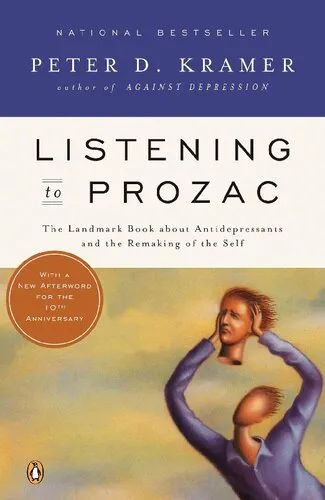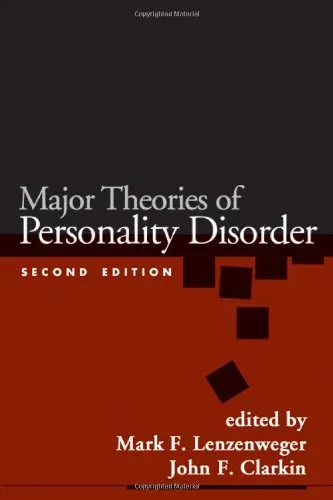Listening to Prozac: The Landmark Book About Antidepressants and the Remaking of the Self, Revised Edition
4.3
Reviews from our users

You Can Ask your questions from this book's AI after Login
Each download or ask from book AI costs 2 points. To earn more free points, please visit the Points Guide Page and complete some valuable actions.Related Refrences:
Peter D. Kramer's "Listening to Prozac: The Landmark Book About Antidepressants and the Remaking of the Self, Revised Edition" offers an in-depth exploration of antidepressants, particularly Prozac, and their profound impact on our sense of self and identity. This seminal work examines the implications of psychopharmacology on personality and happiness, posing challenging questions about the nature of emotion, authenticity, and mental health in the modern world.
Detailed Summary of the Book
In "Listening to Prozac," Peter D. Kramer delves into the transformative effects of Prozac, a selective serotonin reuptake inhibitor (SSRI) that was introduced in the late 1980s and quickly became a household name. Kramer, a psychiatrist, reflects on his clinical experiences with patients who were prescribed Prozac and observed dramatic changes in their personalities. Patients reported feeling more confident, optimistic, and socially connected, leading Kramer to question whether the drug was merely treating depression or fundamentally altering the self.
The book explores the ethical and philosophical implications of using medication to modify personality traits. Kramer asks whether we are enhancing our true nature or artificially manufacturing a new one. "Listening to Prozac" also addresses the societal pressure to conform to certain emotional standards and how Prozac might be used to fulfill these expectations, challenging the boundaries between therapy and cosmetic pharmacology.
Throughout the book, Kramer balances scientific discussion with narratives from real-life cases, making the complexities of pharmacology accessible to a general audience. He highlights how these medications are not just treatments for illness but powerful tools that can reshape how we perceive ourselves and interact with the world.
Key Takeaways
- The Self and Medication: Prozac doesn't just alleviate depression but can also enhance desirable personality traits, prompting questions about identity and authenticity.
- Ethical Considerations: The book challenges the reader to think critically about where we draw the line between therapeutic treatment and enhancement.
- Cultural Impact: Discusses the broader societal implications of widespread antidepressant use, including shifts in what is considered 'normal' emotional behavior.
- Scientific and Clinical Insights: Provides a nuanced look at the biological mechanisms behind SSRIs and their varied effects on individuals.
Famous Quotes from the Book
"Prozac had become more than an antidepressant; it had become a medicine to alter personality."
"When we change biochemistry, are we then changing character?"
Why This Book Matters
Kramer's "Listening to Prozac" remains a vital contribution to the conversation surrounding mental health and pharmaceutical intervention. At a time when mental illness is increasingly destigmatized and medication more common, the book's questions about identity, the ethics of personality enhancement, and the societal implications of widespread antidepressant use are more relevant than ever.
The book encourages readers to consider the potential consequences of blurring the line between treating pathology and enhancing personality. It asks whether enhancing certain traits chemically might diminish the value we place on diversity in human emotion and experience. By posing these questions, "Listening to Prozac" highlights the need for a nuanced understanding of what we seek in mental health treatment and what it means to live an authentic life.
"Listening to Prozac" provides a cautious, thoughtful approach to the complexities introduced by modern psychopharmacology. It is essential reading for anyone interested in psychology, psychiatry, or the broader implications of biological interventions on our conception of selfhood.
Free Direct Download
You Can Download this book after Login
Accessing books through legal platforms and public libraries not only supports the rights of authors and publishers but also contributes to the sustainability of reading culture. Before downloading, please take a moment to consider these options.
Find this book on other platforms:
WorldCat helps you find books in libraries worldwide.
See ratings, reviews, and discussions on Goodreads.
Find and buy rare or used books on AbeBooks.
1372
بازدید4.3
امتیاز0
نظر98%
رضایتReviews:
4.3
Based on 0 users review
Questions & Answers
Ask questions about this book or help others by answering
No questions yet. Be the first to ask!













